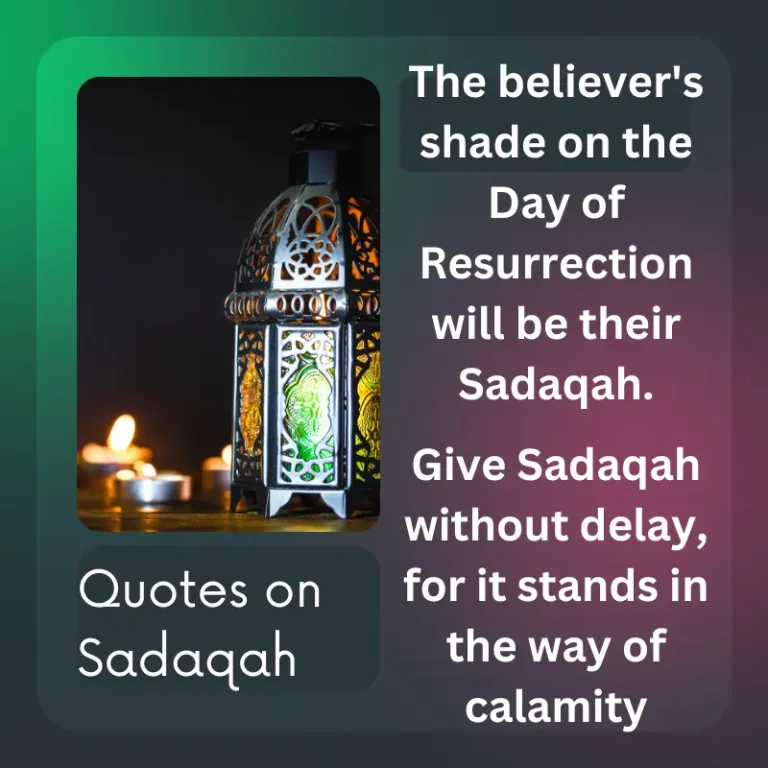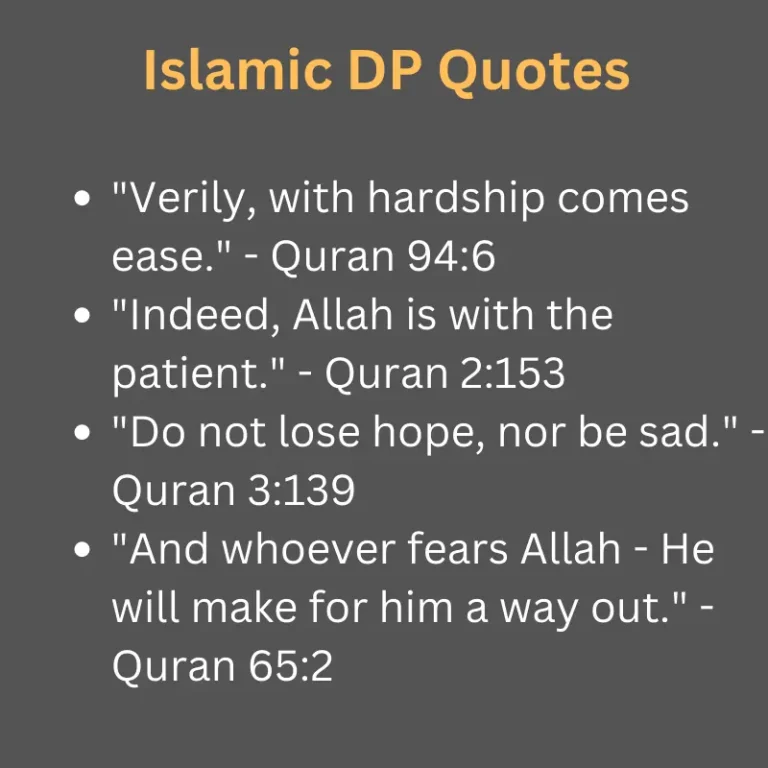Quotes from Quran About Death
The Quran, the holy book of Islam, provides profound insights into various aspects of life, including death. We will be discussing quotes from Quran about death. Muslims turn to the Quran for solace, guidance, and spiritual enlightenment during times of loss and grief. In this article, we will explore 10 powerful Quranic quotes about death that offer profound wisdom and comfort to believers. From the perspective of an expert in the field, we will delve into the significance of these verses, their interpretations, and their practical applications in dealing with the inevitability of death.
Understanding Death in the Quran
Quranic Quote 1: “Every soul will taste death” (Quran 3:185)
- Explanation: This verse emphasizes the certainty of death for every human being, highlighting the universal nature of mortality.
- Application: Reflecting on this verse helps individuals develop a deeper understanding of the transient nature of life, motivating them to prioritize their actions and seek righteousness.
Quranic Quote 2: “From the Earth We created you, and into it We shall return you” (Quran 20:55)
- Explanation: This verse emphasizes the origin and ultimate destination of human beings, reminding believers of their humble beginnings and the inevitability of returning to the earth.
- Application: Meditating on this verse fosters humility and a sense of gratitude, encouraging individuals to lead purposeful lives and prepare for the afterlife.
Seeking Spiritual Comfort in Times of Loss
Quranic Quote 3: “Do not consider those who are killed in the cause of Allah as dead. Rather, they are alive with their Lord, receiving provision” (Quran 3:169)
- Explanation: This verse provides solace by assuring believers that martyrs, despite their physical departure, continue to live in the presence of Allah and are rewarded in the hereafter.
- Application: Understanding this verse brings comfort to grieving families and inspires perseverance in the face of adversity.
Quranic Quote 4: “Whoever works righteousness, whether male or female, while being a believer, We will grant them a good life” (Quran 16:97)
- Explanation: This verse conveys the promise of a prosperous and fulfilling life for those who lead righteous lives, even after death.
- Application: Reflecting on this verse instills hope and encourages believers to prioritize good deeds, knowing that they will be rewarded both in this life and the hereafter.
Overcoming Fear and Embracing the Cycle of Life
Quranic Quote 5: “It is Allah who takes away the souls at the time of their death and those that do not die during their sleep. He keeps those for which He has decreed death and releases the others for a specified term” (Quran 39:42)
- Explanation: This verse elucidates the divine control over life and death, reassuring believers that their time of departure is predetermined by Allah.
- Application: Internalizing this verse alleviates the fear of death, fostering acceptance and trust in Allah’s plan.
Quranic Quote 6: “Say, ‘Indeed, the death from which you flee – indeed, it will meet you. Then you will be returned to the Knower of the unseen and the witnessed, and He will inform you about what you used to do'” (Quran 62:8)
- Explanation: This verse serves as a reminder that death is inevitable and inescapable, urging individuals to focus on their actions and be mindful of their deeds.
- Application: Contemplating this verse encourages believers to live with purpose and mindfulness, recognizing that their actions in this life will have consequences in the hereafter.
The Afterlife and Eternal Rewards
Quranic Quote 7: “And We will surely test you with something of fear and hunger and a loss of wealth and lives and fruits, but give good tidings to the patient, who, when disaster strikes them, say, ‘Indeed we belong to Allah, and indeed to Him we will return'” (Quran 2:155-156)
- Explanation: These verses highlight the concept of trials and tribulations in life and encourage believers to remain patient and steadfast in the face of adversity.
- Application: Understanding this verse helps individuals find solace in the knowledge that their hardships are a test from Allah, and their patience will be rewarded in the eternal life to come.
Quranic Quote 8: “And whoever desires the Hereafter and exerts the effort due to it while he is a believer – it is those whose effort is ever appreciated by Allah” (Quran 17:19)
- Explanation: This verse emphasizes the importance of striving for the Hereafter, seeking eternal rewards through sincere belief and righteous actions.
- Application: Reflecting on this verse motivates individuals to prioritize their spiritual growth and invest in deeds that will yield everlasting benefits.
Does the Quran provide any guidance on funeral rites and mourning?
Yes, the Quran encourages believers to offer funeral prayers, show respect for the deceased, and console the grieving. These practices promote unity and support within the community during times of loss.
Are there any specific verses in the Quran that offer comfort to those mourning the loss of a loved one?
Yes, Quranic verses like “Indeed, with hardship, there is relief” (Quran 94:5) and “Verily, after hardship, there is ease” (Quran 94:6) provide solace and assurance that grief and hardship will eventually be alleviated.
Quotes from the Quran about life after death
“Everyone shall taste death. And only on the Day of Resurrection shall you be paid your wages in full. And whoever is removed away from the Fire and admitted to Paradise, he indeed is successful. The life of this world is only the enjoyment of deception.” (Quran 3:185)
What Islam talks about death:
Islam views death as a natural part of life’s journey. It teaches that death is not the end but a transition to the afterlife. Muslims believe in the concept of accountability and the Day of Judgment, where individuals will be rewarded or punished based on their deeds in this worldly life.
The Arabic quote about the dead:
The Arabic phrase commonly used when referring to the deceased is إِنَّا لِلَّهِ وَإِنَّا إِلَيْهِ رَاجِعُونَ “Inna lillahi wa inna ilayhi raji’un,” which translates to “Indeed, we belong to Allah, and indeed to Him we will return.” This phrase is recited as an expression of submission and acceptance when a Muslim receives news of someone’s passing.
The death prayer in the Quran:
Muslims are encouraged to remember Allah and seek forgiveness for the deceased. They offer funeral prayers, called Salat al-Janazah, to seek blessings for the departed soul and express their supplication for the forgiveness and mercy of Allah.
The quote about losing a loved one in Islam
Islam acknowledges the pain of losing a loved one and encourages believers to find solace in their faith. Quranic verses such as “Indeed, with hardship, there is relief” (Quran 94:5) and “Verily, after hardship, there is ease” (Quran 94:6) provide comfort and assurance that grief and hardship will eventually be alleviated.
In summary, Islam emphasizes the transient nature of life and the certainty of death. Muslims believe in the concept of accountability and the afterlife, where individuals will be rewarded or punished based on their actions. The Arabic phrase “Inna lillahi wa inna ilayhi raji’un” is recited when someone passes away, expressing acceptance of Allah’s decree. While there is no specific prayer for death in the Quran, Muslims offer funeral prayers and seek forgiveness for the deceased. Quranic verses provide solace and assurance to those grieving the loss of a loved one, reminding them of the eventual ease that follows hardship.
The Quran, as the divine revelation in Islam, provides profound wisdom and guidance regarding death. Its verses remind believers of the transient nature of life, the inevitability of death, and the significance of leading righteous lives. Understanding and reflecting upon these Quranic quotes can bring comfort, alleviate fear, and inspire individuals to live purposefully, knowing that their actions in this life will have consequences in the hereafter. By seeking solace in the Quran during times of loss, Muslims find strength, hope, and spiritual fulfillment in the face of the inevitable journey of death.








